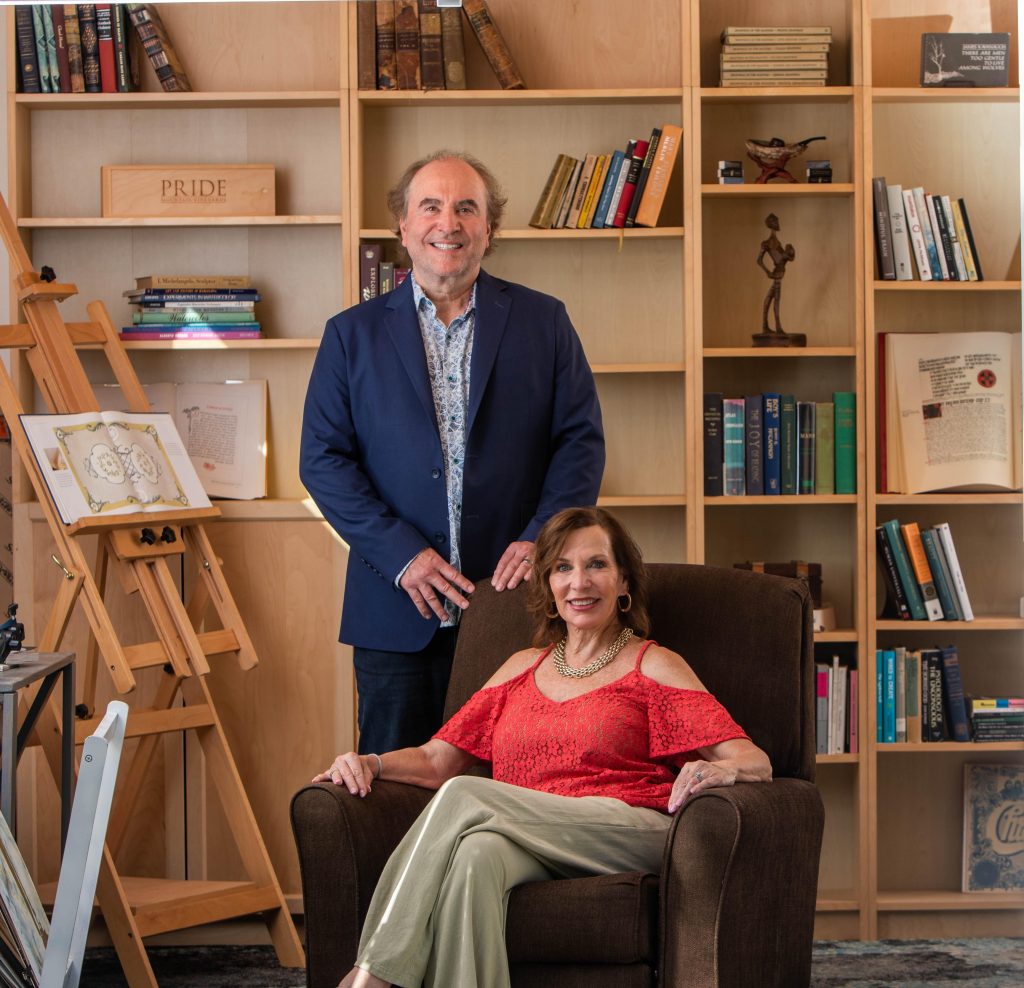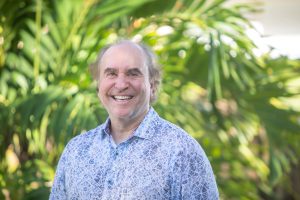Growing up religious in rural Appalachia, Randy Elrod was taught that drugs of any kind were strictly taboo. Nonetheless, Elrod and his wife Gina recently made the first significant legacy gift to the Johns Hopkins Center for Psychedelic and Consciousness Research (CPCR) — the first institution in the United States, and one of the largest in the world, dedicated to advancing scientific understanding of psychedelic drugs and exploring their potential for treating mental health disorders.
The gift, which comprises a generous joint charitable trust, could well be the first estate commitment ever made in support of psychedelic research. And as one might imagine, there is a story behind it.

A gifted musician who first took to the stage at age 4, Elrod spent nearly 30 years serving as the music and arts director for various organizations within his faith community. Eventually, though, he began to question the teachings of the religious leaders whom he served. “They’re very charismatic, but authoritarian,” Elrod says. A voracious reader with a powerful sense of curiosity — he was the first in his family to graduate high school and college, and the first to leave home — he felt the need to explore what else was out there.
Fortunately, Elrod was as talented an entrepreneur as he was a musician.
Beginning in the late 1990s, he spearheaded the development of an early online search engine; launched an interactive CD-ROM business; and founded a conference series that brought together artists and business leaders. By 2006, he was financially independent and able to retire, embarking on a second career as an artist and writer. (He has since authored several books, the most recent being The Quest: Discover a Way to Enjoy the Second Half of Life.) A few years later, he and Gina created a retreat center on 55 acres in the foothills of the Appalachians.
The consequences of the changes that Elrod made to his life were far-reaching: He was shunned by his former religious community, losing most of his friends and some of his closest family in the process. A therapist eventually diagnosed him with PTSD stemming from his upbringing and the radical break he made with his former life. And while therapy helped, therapy coupled with psychedelics helped even more.
Studies conducted in the 1950s and 1960s suggested that psychedelics, which induce altered states of perception and thought, held promise for treating anxiety, depression, and alcohol use disorder. But concerns over potential abuse, coupled with negative media attention and associations with the 1960s counterculture, effectively killed that research: The government classified psychedelics, such as LSD and psilocybin, as Schedule I drugs, leading to highly restrictive regulation and the end of federal funding.

In 2000, however, Hopkins researchers led by the late Roland Griffiths, PhD, won regulatory approval to reinitiate psychedelics research and began publishing studies demonstrating the safety and utility of drugs like psilocybin in treating conditions such as depression, anxiety, and tobacco addiction. (Griffiths, who founded the CPCR in 2019, died of colon cancer in October.) Their work helped spur a renaissance in psychedelics research around the globe and reduced the stigma associated with the therapeutic use of these substances. Today, researchers at the center and elsewhere are investigating the potential use of psychedelics to treat ailments ranging from anorexia to Alzheimer’s disease.
A behavioral psychologist friend of Elrod’s told him about research indicating that psychedelics could be useful in treating PTSD. Intrigued, Elrod began reading and listening to podcasts about the science of psychedelics, discovered the work being done at Johns Hopkins, and eventually had his own life-altering encounter with psilocybin.
“The fear and the distress I had have been greatly alleviated,” he says. “I’ve had more joy and more peace in the last four years than I’ve ever had in my life.”
Not long after that immensely positive experience, Gina’s father passed away, and the couple found themselves wondering if psychedelics might have brought him some relief as he approached the end of his life. Multiple studies by CPCR researchers have shown that psilocybin can reduce depression, including the kind that can accompany a terminal diagnosis. When their financial manager prodded them to do some estate planning, the Elrods therefore reached out to Johns Hopkins to discuss a commitment from their estates to the center, which has since its inception been supported almost entirely by philanthropy.
“The Elrods’ vision in providing an unrestricted gift is foundational to the future of psychedelic science,” says Fred Barrett, PhD, associate professor of psychiatry and behavioral sciences. “Their gift is critical to ensuring important work, including the investigation of approaches that may provide novel solutions for the treatment of intractable suffering, continues.”
Knowing that only increases the sense of satisfaction that Randy and Gina take in making a legacy gift.
“It makes us feel good knowing we can do this,” they say.
This story first appeared in the Winter 2023 edition of Planning Matters.
Topics: Friends of Johns Hopkins Medicine, Johns Hopkins Medicine, Psychiatry and Behavioral Sciences, Fuel Discovery